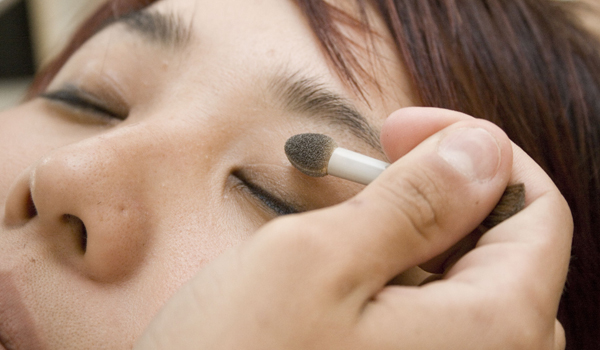The Healthy Geezer: Are Cosmetics Safe?

Question: Are cosmetics safe?
Answer: Cosmetics include makeup, hair dyes, perfumes, skin creams, lotions, nail polishes, toothpastes and deodorants. Unlike drugs, which are used to treat or prevent disease, cosmetics do not affect the body's structure or functions.
In 1938, Congress passed the U.S. Food, Drug, and Cosmetics Act to protect consumers. Under the law, cosmetics must be made and packaged in clean factories; cannot contain poison, rotten, or harmful ingredients; may only use color additives that are approved by the U.S. Food and Drug Administration, and must have a clear, truthful label.
The FDA does not test cosmetics before they are sold in stores. The FDA can take action against companies who break the law.
Some products are both cosmetics and drugs. For example, an antidandruff shampoo is a cosmetic because it cleans hair, but it is also a drug because it treats dandruff. These products must meet the standards for both cosmetics and drugs.
Some cosmetic makers use the term cosmeceutical to refer to products that have drug-like benefits. The term has no meaning under the law.
You can tell if you're buying a cosmeceutical by checking the container to see if the first ingredient listed is an active ingredient. The active ingredient is the chemical that makes the product effective, and the manufacturer must have proof that it's safe for its intended use.
Sign up for the Live Science daily newsletter now
Get the world’s most fascinating discoveries delivered straight to your inbox.
Hypoallergenic cosmetics are products that manufacturers claim cause fewer allergic reactions than other products. There are no federal standards for using the term hypoallergenic; it can mean whatever a company wants it to mean. Cosmetic makers do not have to prove their claims to the FDA.
Some products that have natural ingredients can cause allergic reactions. If you have an allergy to certain plants or animals, you could have an allergic reaction to cosmetics with those things in them.
Some cosmetics can cause acne. Choose non-comedogenic make-up and hair care products. This means they don't close the pores in your skin.
Serious problems from cosmetics are rare.
The most common injury from cosmetics is from scratching the eye with a mascara wand. Never apply mascara while in a moving vehicle.
Sharing make-up is a no-no. Cosmetic brushes and sponges pick up bacteria from the skin. And if you moisten brushes with saliva, the problem can be worse.
If mascara flakes into your eyes while you sleep, you might wake up with itching, bloodshot eyes, infections, or eye scratches. Remove all make-up before going to bed.
It is dangerous to use aerosol hairspray near heat. Until hairspray is fully dry, it is flammable. Aerosol sprays or powders also can cause lung damage if they are inhaled deeply into the lungs.
Here are some more tips for the use of cosmetics:
- Keep makeup containers clean and closed tight when not in use.
- Wash your hands before you put on makeup.
- Do not add saliva or water to makeup.
- Throw away makeup if the color or smell changes.
- Don't store your make-up above 85 degrees Fahrenheit.
- Stop using a product if you get a rash, itching, redness, sneezing or wheezing.
- Do not keep mascara too long. Some companies say three months is long enough.
- Do not use eye makeup if you have an eye infection. Throw away eye makeup you were using.
- Do not use cosmetics near your eyes unless they are meant for your eyes. For example, don't use a lip liner as an eyeliner. You may spread germs from your mouth to your eyes.
- Kohl also known as al-kahl, kajal, or surma is used in some parts of the world for enhancing eyes. Kohl is unapproved in the United States. Kohl has been linked to lead poisoning in children.
- Don't dye eyelashes and eyebrows. No color additives are approved by FDA for permanent dyeing or tinting of eyelashes and eyebrows. Permanent eyelash and eyebrow tints and dyes have been known to cause serious eye injuries.
If you have a question, please write to fred@healthygeezer.com.
- The Healthy Geezer: How to Be a Good Grandparent
- The Healthy Geezer: Is Pain a Necessary Part of Aging?
- The Healthy Geezer: How Does Mold Make You Sick?
Follow MyHealthNewsDaily on Twitter @MyHealth_MHND.









